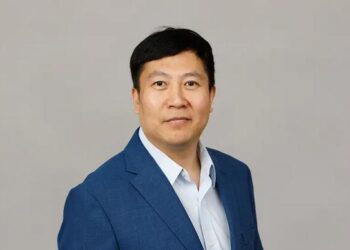UC San Francisco researchers have received $12.45 million from the National Cancer Institute (NCI) to lead the first long-term study of cancer among Asian Americans, a highly diverse yet understudied group.
UC San Francisco researchers have received $12.45 million from the National Cancer Institute (NCI) to lead the first long-term study of cancer among Asian Americans, a highly diverse yet understudied group.
Despite a growing incidence of cancers that in some cases exceed those of other groups, there has never been a national longitudinal study of cancer in the Asian American community, and there are many open questions.
For example, the researchers are seeking to understand why Asian-American women who never smoked are susceptible to lung cancer, and why Asian Americans have become the first racial/ethnic group for whom cancer is the leading cause of death.
Researchers also plan to study the increasing rates of breast cancer, especially among young Asian-American women; and the relatively high rates of nasopharyngeal cancer, a type of head-and-neck cancer, in Chinese Americans; as well as liver cancer in Southeast Asian Americans; gastric cancer in Korean and Japanese Americans; and thyroid cancer in Filipino Americans.
Asian Americans are the fastest growing racial and ethnic group in the United States and comprise 7% of the population. Yet, as of 2020, less than 1% of funding from the National Institutes of Health was devoted to research on Asian Americans. A 2016 review of NCI grants found almost no studies on the causes of cancer among Asian Americans.
“The fact there’s been so little funded research in the cancer etiology of Asian Americans continues to perpetuate the sense that the cancer burden in these populations is very low,” said Scarlett Lin Gomez, PhD, MPH, co-leader of the Cancer Control Program at the Helen Diller Family Comprehensive Cancer Center, a professor of epidemiology and biostatistics, and one of three co-principal investigators of the study. “That the NCI recognized this as a major gap and will be providing funding for this historic cohort is a significant step forward.”
Study seeks participants from every Asian-American group
The grant supports the creation of a national cohort called ASPIRE, or ASian American ProspectIve REseach. Gomez, along with co-principal investigators Iona Cheng, PhD, MPH, and Salma Shariff-Marco, PhD, MPH, will lead the effort in collaboration with UC Davis, UC Irvine, UC Los Angeles, Cedars-Sinai, the University of Hawaii, Temple University, and Jefferson University.
“As the first national cohort to study cancer risks in our diverse Asian American communities, this is a historic milestone,” said former U.S. Assistant Secretary for Health, Howard Koh, MD, MPH, of the Harvard T. H. Chan School of Public Health and the Harvard Kennedy School, who serves on ASPIRE’s scientific advisory board. “Our communities have been waiting for this moment for a lifetime, and we hope they will join the call to action to be a part of ASPIRE.”
The initial cohort will be supported by a national network of partners across about 20 academic institutions, 40 community organizations, and two policy groups committed to Asian-American health. In the coming years, they plan to recruit 20,000 men and women between the ages of 50 and 75 years old from all Asian-American ethnic groups with diverse socioeconomic levels and lifestyles. They aim to expand the study to at least 50,000 participants.
Recruitment will be centered in selected regions that comprise more than a third of the Asian-American population: California (the Bay Area, L.A, Orange County, and Sacramento) as well as the New York metropolitan region, including North Jersey, and the Philadelphia metropolitan area, which includes South Jersey. Researchers also will recruit nationally.
Alarming trends that need continued study
Cancer patterns for Asian Americans differ from those found in Asian countries, and new research shows anti-Asian discrimination has increased such cancer health risks as tobacco use and obesity. It also affects the extent to which Asian Americans get screened for cancer and utilize other types of health care.
“There are unique cancer burdens in these groups, and the patterns and trends get lost when Asian American data are aggregated into one single statistic,” said Cheng, a professor of epidemiology and biostatistics. “We don’t have cohort studies that can tell us what the risk factors are for cancer in diverse Asian-American populations.”
Discover more from Science
Subscribe to get the latest posts sent to your email.



